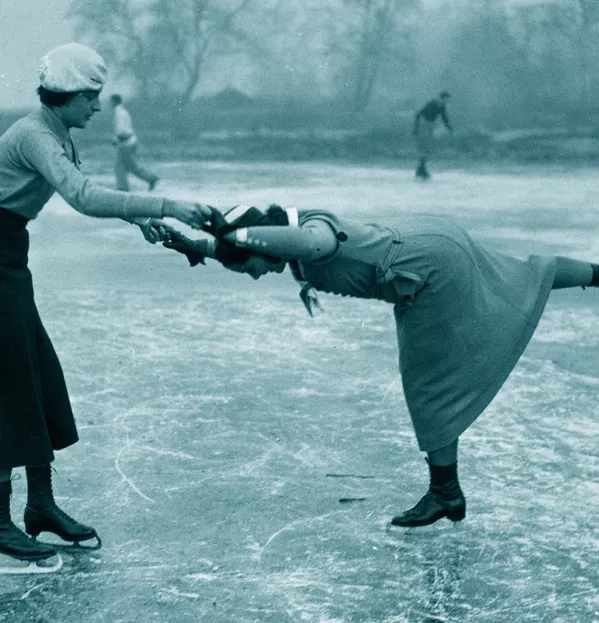When a little uncertainty goes a long way for heads

The common perception of strong leadership is that it is all about certainty and confident decision-making. So is a sense of uncertainty a trait that headteachers should try to avoid - or even feel ashamed of?
The short answer, based on the research, is “No”. In his 2016 book, Nonsense: the power of not knowing, author Jamie Holmes argues that uncertainty improves decision-making, “promotes empathy and boosts creativity”. Furthermore, a 2014 study, undertaken by Luxi Shen et al and published in the Journal of Consumer Research, finds that uncertainty is capable of generating positive experiences, such as excitement, which in turn boosts motivation (bit.ly/Shen2014).
The long answer, though, is that things are a little more complex. Social psychologist Arie Kruglanski, who has undertaken research into uncertainty, says leaders must aim for a balance. “Uncertainty promotes the search for certainty and that’s a good thing in the sense that it stimulates the search for data and evidence,” he argues.
On the flipside, Kruglanski suggests that uncertainty can be harmful if it is allowed to fester. “If it is prolonged, it creates confusion - it can be disorientating and result in paralysis,” he says. “In order to act, you need a platform of certainty on which to launch your actions.”
This balancing act is one that many headteachers know all too well. Education is continually in a state of flux - curriculum, testing, inspection frameworks, funding and staffing - and, as a result, uncertainty is a constant companion.
During a school leader’s early years, in particular, it is easy to become overwhelmed by these “ever-shifting sands”, as Bill Lord, headteacher of Long Sutton Primary in Lincolnshire, puts it. But with experience, he says, you get used to dealing with such uncertainties and develop a range of coping mechanisms.
“In terms of my daily work, it is not uncommon to feel nervous or uncertain,” Lord says. “I will often run something by a local head to check that my concerns are founded and my solution is right. I also have members of the leadership team I can talk to. So, for me, it is [important] to trust your own judgement, have a phone-a-friend, check with staff who understand the school and the vision, and don’t worry if you feel uncertain. You can never know all the answers.”
Professional judgement
Similarly, when Tim Gibbs, head of Reepham High School in Norwich, feels unsure about anything, he consults with his senior leadership team. Most of the time, this enables him to come up with a “sensible and effective” solution. But he adds that it’s necessary to recognise some things cannot be controlled.
“A good example is putting together the following year’s curriculum and timetable for our sixth form,” Gibbs says. “It is, essentially, a gamble; until enrolment ends, we really cannot be certain about whether our plans and best guesses match the reality. If we offer a subject that unexpectedly only attracts one or two students, despite us previously expecting a dozen, we have to deal with that. Matching our offer to what is actually needed always presents uncertainty. Ultimately, you have to embrace it and back yourself.”
Gibbs says that, when faced with uncertainty, a headteacher must use their “professional judgement”, adding that if you “do not have the confidence to believe in your own professional judgement, being a senior leader probably isn’t the role for you”.
So uncertainty comes with the territory, and while many people don’t like it and try to hide the fact that they experience it, others - like Chris Wain, head of Pallister Park Primary in Middlesbrough - thrive off it.
Wain recommends keeping particular people in the loop about any uncertainty, but protecting the majority of staff from it as much as possible.
“I am very much an in-the-moment person, so I love a bit of chaos in my working day, but I do believe that I and my leadership team are the gatekeepers for the rest of the staff,” she says. “In times of uncertainty, strong, confident leadership is needed, along with a confident air - plus a fixed grin.”
Simon Creasey is a freelance writer
You need a Tes subscription to read this article
Subscribe now to read this article and get other subscriber-only content:
- Unlimited access to all Tes magazine content
- Exclusive subscriber-only stories
- Award-winning email newsletters
Already a subscriber? Log in
You need a subscription to read this article
Subscribe now to read this article and get other subscriber-only content, including:
- Unlimited access to all Tes magazine content
- Exclusive subscriber-only stories
- Award-winning email newsletters